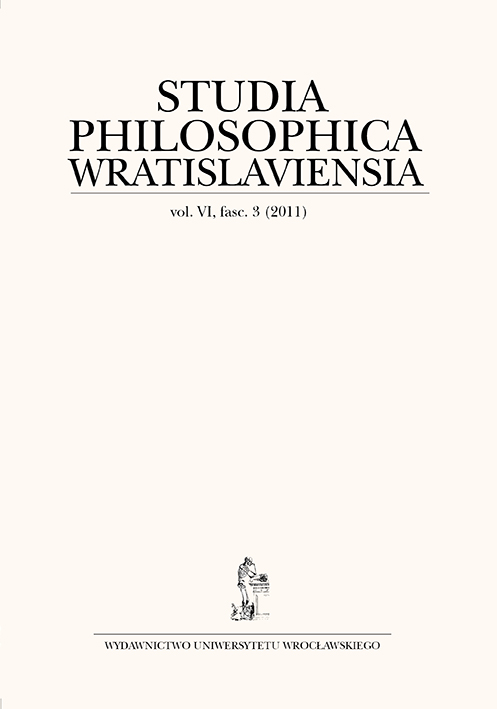

Artykuły

Democratic Thought Style in Natural Sciences — following the philosophy of L. Fleck
This article is an attempt at the analysis of L. Fleck’s historical hypothesis concerning non-accidental collective shaping of the democratic thought style and natural sciences. According to Fleck, the thought collective of natural sciences and its thought style are a measure of the highest level of democracy of a given historical period. In consequence, it is also the one and only objective truth available to man. The author of hereby presented article is attempting to follow Fleck’s hypothesis in order to prove that the democratic thought style present in ancient Greece formed the basic ideas law of nature, proof, the empirical-deductive method, rules of hypothesis saving phenomena allowing human exploration of natural world, and has further allowed emergence of sophisticated methodology and epistemology. Unfortunately, violent decline of the idea of democratic state and citizenship also contributed to the demise of a promising work of the Hellenic natural scientists. The Hellenic tradition was brought back to use by Galileo Galilei, who whilst conducting his research had to struggle with the lack of democratic thought style at that time. If Fleck’s theses can be justified and the introductory historical research conducted by the author of hereby presented article prove them to be quite strongly substantiated, the criteria and epistemological methods that are a priori imposed upon the sciences should be replaced by other methods — those capable of detecting connections existing between the democratic thought style and natural sciences. The best tool serving that role is the comparative theory of thought styles and thought collectives. This theory should act as a new theory of knowledge. Its superiority over classical epistemology relies upon the fact that it can fulfil Fleck’s criteria of scientificity, whereas the classical theory of knowledge understood as a discipline of philosophical thought style is unable to do so.